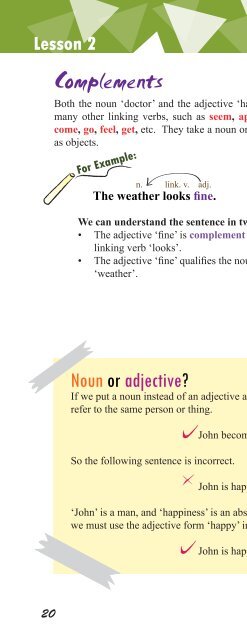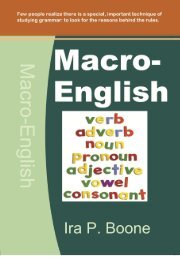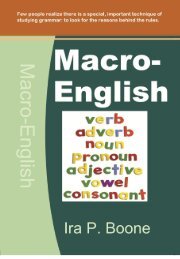English for the Eager Learners
You also want an ePaper? Increase the reach of your titles
YUMPU automatically turns print PDFs into web optimized ePapers that Google loves.
Lesson 2<br />
20<br />
Complements<br />
Both <strong>the</strong> noun ‘doctor’ and <strong>the</strong> adjective ‘happy’ are complements of ‘is’. There are<br />
many o<strong>the</strong>r linking verbs, such as seem, appear, become, grow, turn, prove, look,<br />
come, go, feel, get, etc. They take a noun or an adjective as <strong>the</strong>ir complements, NOT<br />
as objects.<br />
For Example:<br />
n. link. v. adj.<br />
The wea<strong>the</strong>r looks fine.<br />
We can understand <strong>the</strong> sentence in two ways:<br />
• The adjective ‘fine’ is complement of <strong>the</strong><br />
linking verb ‘looks’.<br />
• The adjective ‘fine’ qualifies <strong>the</strong> noun<br />
‘wea<strong>the</strong>r’.<br />
Noun or adjective?<br />
If we put a noun instead of an adjective after a linking verb, we say <strong>the</strong> two nouns<br />
refer to <strong>the</strong> same person or thing.<br />
So <strong>the</strong> following sentence is incorrect.<br />
John becomes a teacher. (John = a teacher )<br />
John is happiness.<br />
The wea<strong>the</strong>r looks fine.<br />
‘John’ is a man, and ‘happiness’ is an abstract noun. They are different things. Here<br />
we must use <strong>the</strong> adjective <strong>for</strong>m ‘happy’ instead.<br />
John is happy. ( = happy John / a happy man)




